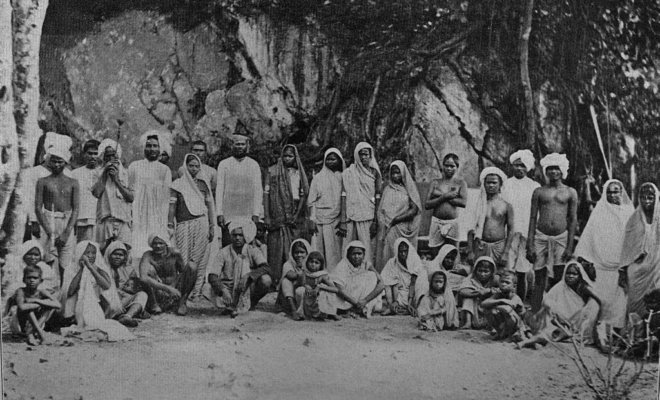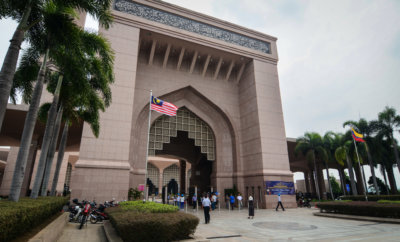Immigration
Girmit Remembrance Day Observed in Fiji, New Zealand on May 14

Indian indentured laborers in Trinidad. (Representational image)
Photo: Wikimedia Commons
The Girmit Remembrance Day marks the arrival of the first ship carrying Indian indentured laborers in Fiji.
The 139th Girmit Remembrance Day was commemorated in Fiji on May 14 to mark the arrival of the first ship full of Indian indentured laborers to the country in 1879. The day is observed on May 14 to acknowledge the struggles of the Indians who were brought to Fiji by the British administration in an exploitative manner.
Members of the Indian diaspora, most of whom stayed back after the system of indentured labor was abolished, have still maintained their culture and language. On May 14, Indian music and other cultural activities are presented as to mark the occasion.
In Fiji’s Nadi, a skit was performed about a 59-year-old woman’s great grandmother, who was originally from Uttar Pradesh. The ancestor was abducted and put on board the Leonidas, which was the first ship carrying laborers from India to dock in Fiji.
The skit was part of the Girmit Remembrance Day held at Nadi Civic Centre, which was attended by descendants of those who were brought to work in sugarcane farms across the islands.
“My great grandmother was just 19 years old when she was kidnapped with my grandfather, who was just six months old. My great grandmother was promised a good job with better wages. She found she was being shipped to a totally different country and for days and nights without proper meals she finally arrived in Fiji on board the Leonidas in May 1879,” Mayotri Chand, 59, of Ba town, was quoted as saying by the Fiji Sun online.
The Girmit Remembrance Day was also observed in New Zealand’s Auckland. The Shri Ram Mandir in the city hosted a presentation talking about the history of the Indian indenture system. Musical performances were also held at the temple.
Many people took to the social media to commemorate the day.
https://twitter.com/Sonaholic_Ashu/status/995927650572025856
The term “Girmit” comes from the word “agreement,” under which the laborers were required to work for at least five years, after which they would be allowed to return on their own expense. But if they worked for 10 years, they and their children would be given free passage back to India by the colonial government. However, it is believed that the Indians were stopped from returning to their country by the colonial government of Fiji and the Colonial Sugar Refining Company (CSR) of Australia to ensure continued supply of labor to the sugar industry.
After the indenture system was abolished in 1921, only 25,000 people returned to India. Approximately 60,500 young men, women and children were transported to Fiji between 1879 and 1916. About 25 per cent of these Girmityas came from Madras, according to Girmit.org.
The indenture system was started by the British, who were then colonizing India, in 1838 to recruit cheap labor in their other colonies after the end of African slavery in 1833. Almost 1.2 million Indians were displaced from India to the colonies between 1838 and 1916.



